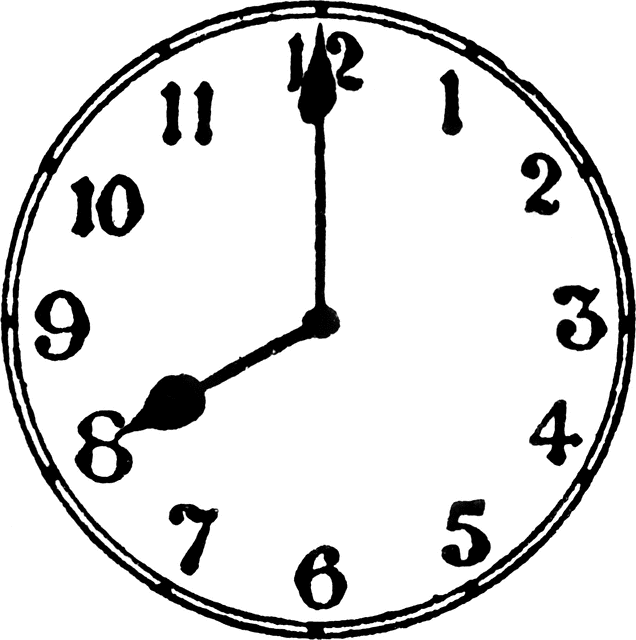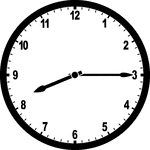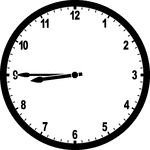Thursday, 11 April 2019
Tuesday, 9 April 2019
April 9th Update
Math
In math we are learning about repeated addition and multiplication.
Yesterday we began by looking at a picture of a grocery store. Students were challenged to determine how many of each product without counting by ones (see pictures below).
Many students chose to skip count, others made groups and then added the groups together. From here we will explore how grouping, and repeated addition connect to multiplication.
Today we looked at collections of stamps. Students learned about why stamps have a cost, and how many people buy a "package" of stamps. All stamps in a package are the same price. We explored different ways to determine the price of a package of stamps.
In one picture a collection of stamps looked like this:
4 4 4
4 4 4
Some students decided to add 4 6 times. 6 groups of 4 equals 24, so the price of the package is 24 cents.
Some students grouped the 4s together to make 8. 3 groups of 8 also equals 24.
Another way was to look at the stamps as 2 groups of 12. 2 groups of 12 also equals 24.
Our learning goal today was to make groups, and then add the groups together. Students construct their learning in different ways. Some students are still comfortable with skip counting, while others are beginning to make the connected between repeated addition and multiplication.
Here is one example of student work from today:
Here is one example of student work from today:
Literacy
Reading: As a whole class, we are continuing to read articles and books while discussing the different perspectives presented. Last week we finished reading The Tiny Hero, this week we began a new chapter book titled The Wild Robot. In small groups (guided reading groups, and one-on-one reading) we have been focusing on using non-fiction text features (glossary, bolded words, index, headings) to deepen our understanding of the text. We have also been working on finding the main idea in a text, and reviewing decoding strategies.
Writing: We are learning how to write an opinion paragraph. After spending lots of time sharing our opinions orally, it's time to capture our ideas and thinking in writing. Yesterday we read, "Should Children Choose Their Bedtimes?" as a class. After reading we discussed some of the main reasons and examples that support the two different opinions presented in the text (children should choose their own bedtimes, parents should choose children's bedtimes). Next as a whole class we worked on organizing our ideas into an "OREO" planner. Finally, students worked on their own OREO planners to share their opinions. This week we will continue to use the OREO planner to organize our thinking, next week we will learn how to transfer ideas from the planner into complete sentences to create a paragraph.
We have been looking at "issues" as a whole class (e.g., should animals be kept in zoos? is it right to use technology to track sharks? are self driving cars safe?). Later students will determine their own issue that they feel passionate about. They will use the OREO planner to organize their thoughts (opinion and reasons with examples to support it), and then write a paragraph. After that, students will read their paragraph to the class as a speech.
Social Studies
Grade 2 students have been learning about a global community. Grade 3 students have learned about the three land form regions in Ontario, and have chosen one that they will explore deeper. Last week students gathered 5 pictures that represent how physical features/landform features, and climate affect humans in a specific region of Ontario/ global community. This week they are working on using these 5 pictures to create a poster that will be shared with the class.
At the end of the week students will complete a Show What You Know about our learning in social studies. There is no need to study and review at home as students have be engaged in activities and discussions here in class. This assessment at the end of the week will provide an additional opportunity for students to share their learning in this unit.
Next week we will jump into our next science unit about air and water (Grade 2) and soil (Grade 3)
Drama
Students have worked in small groups to create a short adventure story. They will present their adventure stories through drama in the coming weeks. The first dramatic presentation will be done with puppets! If you have any extra felt, buttons, fabric, or other craft materials that will help to create puppets please send it to school ASAP. Thank you!
Friday, 29 March 2019
Portfolios and Clothing Drive
The green portfolios will be sent home today with assessments for writing, math, and science. Please review over the weekend, sign, and return to school on Monday.
The Grade 8s at our school are giving back to our community. They have organized a used clothing drive. If you would like to support this initiative, please send any used clothes that are not needed anymore to school.
Wednesday, 27 March 2019
Monday, 25 March 2019
March 25th Update
My apologies for this late post. I was having some trouble uploading pictures.
Science
Our learning about liquids and solids and structures has wrapped up. To end the unit students in Grade 2 conducted their own experiments to observe how liquids and solids interact. Students in Grade 3 built their own structures and then tested their strength and stability in the wind from a fan. Students were provided with opportunities to share their learning and thinking in writing, and orally. Assessment from these units will be sent home soon. Here are some photos that capture the learning.
Social Studies
We have started learning about new topics in social studies. Our guiding question in this unit is "Why do we Live Where we Live?"
Grade 2 students are learning about Global Communities. The main learning goal is determining how physical features and climate affect the way people live around the world. In the beginning of the unit students expressed different countries that they are interested in learning more about. This week they will read about their chosen country and gather information about the physical features and climate. They will then determine how these factors affect people living in these places.
Grade 3 student are learning about the 3 land form regions in Ontario (Great Lakes St. Lawrence Lowlands, Hudson Bay Lowlands, and Canadian Shield). Similarly to the Grade 2s, they are also investigating how the land form features, and climate affect how people live and work in those regions. Students will also be learning about the role of the environment and how this can provide job opportunities, but can also be affected by human activities.
Both grades will have opportunities to compare different places to live (global communities, and regions in Ontario). Students will celebrate their learning in the end of the unit by creating a public service announcement persuading people to visit a specific community/region.
Math
Before March Break students demonstrated their learning about telling time by having an interview with me. These interviews will be sent home soon.
On the first day back after March Break students discussed some of the things that they did while they were away from school. We collected data to determine how many students did the activities that were shared. Here are the results:
Students then represented this data on a pictograph. After that they interpreted the data to better understand how their classmates spent March Break. This year instead of having data management as a stand alone unit in math we have been integrating it into where it becomes meaningful and engaging. In previous science experiments students have gathered data and created bar graphs. There are more opportunities coming up for students to gather, represent, and interpret data.
Recently we have been learning about fractions in math. Students are learning how to write fractional names to describe equal amounts, compare fractions, and solve problems involving fractions. Here are some pictures from our learning last week:
New Class Incentive and Money
As a new class incentive for good behavior students can earn 25 cents a day ( of play money of course!). Following routines, listening, treating others the way you want to be treated, and putting best effort into learning are all ways that students can earn their 25 cents a day. Breaking the lunch rules, hurting someone, and being disrespectful are behaviors that will not earn 25 cents. On the Thursday before Easter weekend Mrs. Gibbs will open a store where students will be able to purchase items with their savings. We will also spend some time soon learning about adding and subtracting money, as well as reviewing the Canadian coins.
Literacy
In reading, we are working on finding the main idea in non-fiction texts. This supports our learning in social studies, as well our next units in science about living things. Students are also learning about different perspectives/opinions on important issues. We have been reading books and articles about important issues mostly related to the environment. Students are given opportunities to share their own perspective. These activities are getting us ready to do some opinion paragraph writing. Students are being encouraged to think about an issue that they feel passionate about that they will later writing their opinion piece about (e.g., littering, use of the field at recess, keeping wild animals as pets, cutting down trees, being active, playing sports, eating healthy).
Friday, 1 March 2019
March 1st Update
Math
In math we are learning about telling time. As a class we are focusing on telling to the hour, half hour and quarter hour. The Grade 3 students will learn about telling time to 5 minute intervals.
 |
| We can say and write 8:00 or 8 o clock |
Many students require practise with telling time. It is a skill that takes "time" to learn and students will benefit from practising at home.
We have also been exploring the relationship between minutes, hours, days, months, and a year (e.g., how many minutes are in one hour? how many minutes do we spend reading to self in one week?, how many hours do we spend learning math each week? how many months until Halloween?)
Science and Writing
Next
week students will be completing their culminating task for our science units
(liquids and solids, strong and stable structures). This task will also incorporate
the skills that students have learned about writing lab reports. Today students
worked on designing their own experiment that they will conduct in class next
week. I have instructed
students to bring materials that they
can from home. I will try to supply anything that is not brought in.
Materials need to be at school on Monday, March 4th.
Subscribe to:
Posts (Atom)











